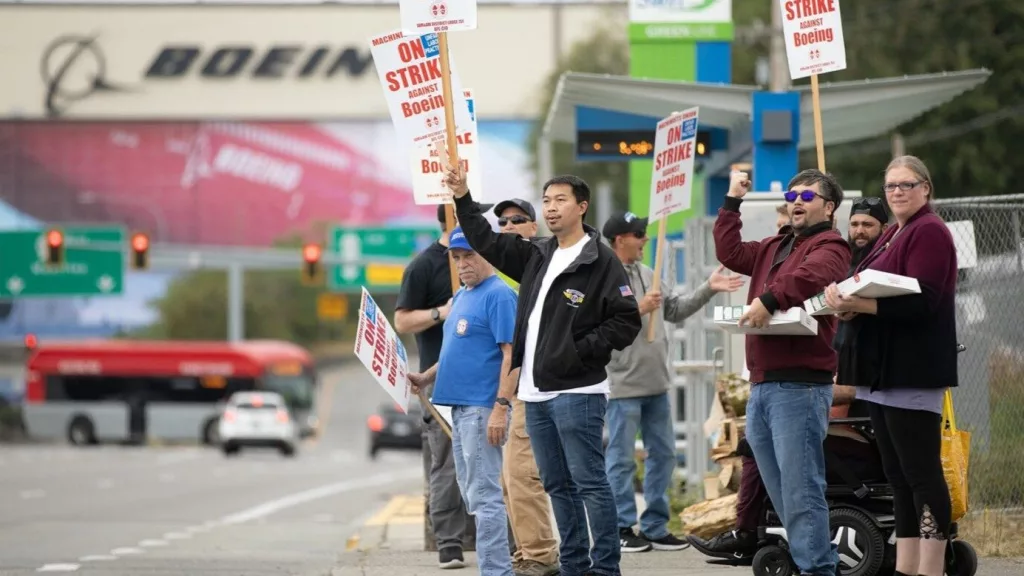OLYMPIA, WA – Lawmakers in the Washington House and Senate have struck an agreement to provide up to six weeks of unemployment insurance for striking workers.
Both chambers approved Senate Bill 5041 this year to open the safety net program to striking workers, but they set different limits for the amount of time people could receive benefits. The Senate approved a 12-week limit, the House four weeks.
Sen. Marcus Riccelli, D-Spokane, said the six-week compromise hits a “sweet spot,” addressing concerns from businesses while leveling the playing field for low-wage workers.
Labor unions and Democratic lawmakers have pressed for the bill, arguing the benefits will help striking workers afford necessities such as food and rent when negotiating for better wages and working conditions.
When the bill passed the Senate last month, an amendment that would have restricted unemployment benefits to four weeks failed by one vote. Then, in mid-April, the House amended the bill ahead of a floor vote to add the four-week limit.
Gov. Bob Ferguson, a Democrat, has not publicly taken a position on the bill.
Under the bill, workers would become eligible for unemployment benefits on the second Sunday after a strike begins, plus a one-week waiting period. Typically, unemployment insurance is offered for up to 26 weeks a year.
If a strike is determined to be prohibited by state or federal law, benefits would have to be repaid.
Workers affected by employer-initiated lockouts would also be eligible for the benefits. Labor advocates point to lockouts as a tactic businesses can use to put pressure on workers during contract negotiations.
New Jersey and New York are the only states that provide unemployment insurance for striking workers.
Republicans opposed the bill.
They, along with business groups, argue it could incentivize workers to strike and result in higher costs for businesses that could spill over onto employers not involved in labor disputes.
“If employers aren’t healthy, you don’t have workers and when we don’t have healthy employers, we’re not going to have a healthy economy,” said Rep. Suzanne Schmidt, R-Spokane Valley.
The bill would also require the state’s Employment Security Department to submit annual reports to the Legislature with data on the prevalence of strikes in the state and the cost of benefits for striking workers for Washington’s unemployment insurance trust fund.
If passed, the bill would take effect on Jan. 1, 2026, and is set to expire Dec. 31, 2035.
Both chambers have to wait 24 hours before putting the bill up for a vote, which means it could gain final approval from the Legislature as early as Friday. The session ends Sunday.
Washington State Standard is part of States Newsroom, a nonprofit news network supported by grants and a coalition of donors as a 501c(3) public charity. Washington State Standard maintains editorial independence. Contact Editor Bill Lucia for questions: info@washingtonstatestandard.com.





